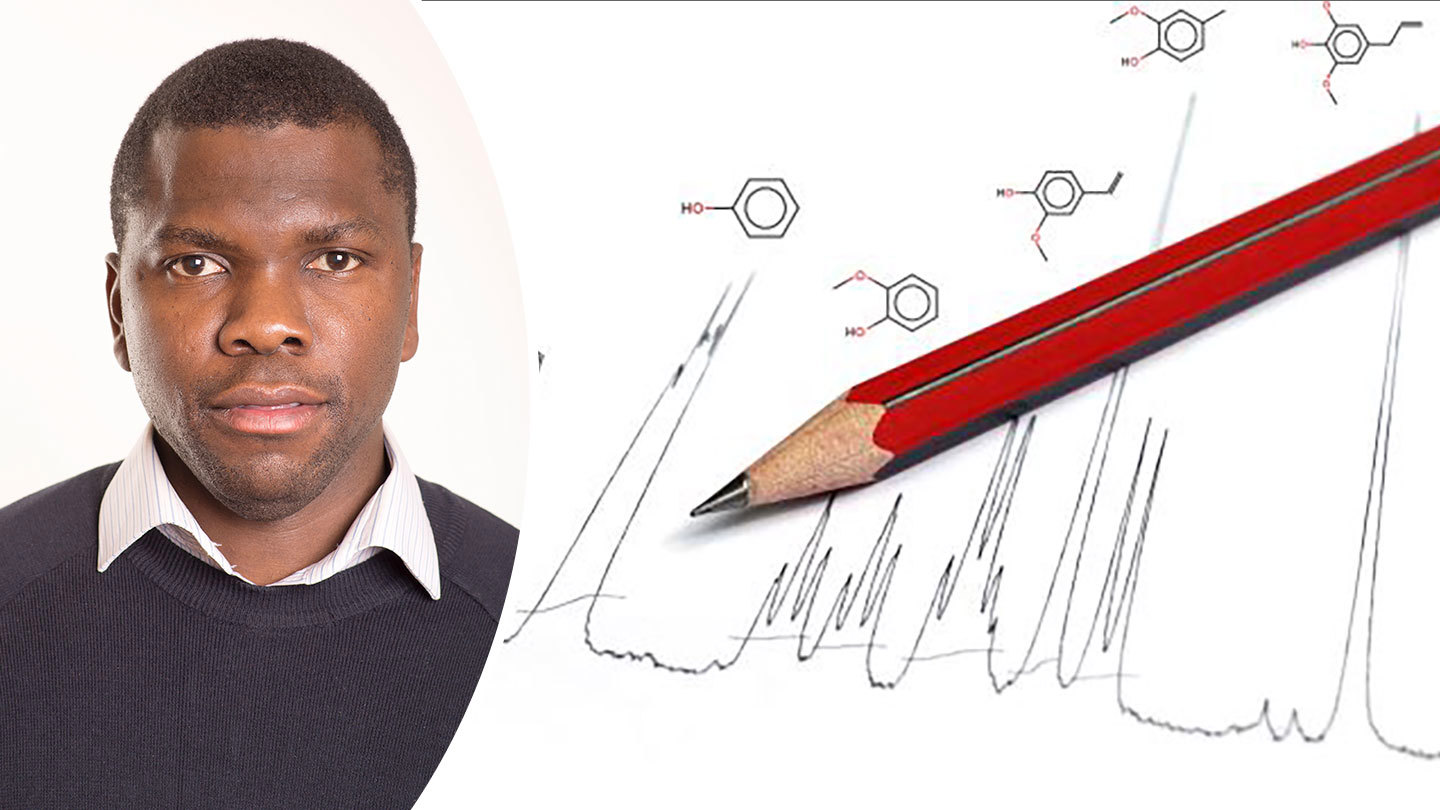A new doctoral thesis unlocks the potential of fast pyrolysis to tackle waste management
2023-10-20

Fast pyrolysis is a process in which biomass is rapidly heated to high temperatures in the absence of air (specifically oxygen) to transform bulky agro- and forest-based raw and residual biomass feedstock into mainly liquid bio-oil and small amounts of solid products.
In his dissertation, "Advances in Fast Pyrolysis: Understanding Biomass Decomposition”, David Usino, who recently became a PhD in Resource Recovery at the Swedish Center of Resource Recovery at the University of Borås, not only unravels the secrets behind biomass transformation, but he also shows practical areas of application to the benefit of both industry and the environment.
A way to control the process
"Significant results showed that temperature and residence time could be controlled to influence the primary products formed during fast pyrolysis. Additionally, I explored the interaction effects when different biomasses were co-pyrolyzed or pretreated with dilute acid solutions, which could enhance the formation of specific chemical compounds", he said.
Accurate analysis
The novelty of his work lies in the use of instruments that measures primary reactions, and the ability to accurately analyze the volatile compounds formed. This provides a deeper understanding of the primary reactions during pyrolysis.
"This research is important for several reasons. It sheds light on the possible reaction routes during the primary decomposition of biomass, which can serve as a foundation for further studies in this area. Moreover, it highlights the potential of the production of valuable chemicals through co-pyrolysis or pretreatment with acid solutions. Additionally, by converting waste biomass into useful products, this work contributes to waste reduction and environmental benefits", David Usino explained.
Of interest to industry
The results of his research have the potential to benefit industry by improving the understanding of biomass pyrolysis processes and promoting the production of valuable chemical compounds. It can also have positive implications for society by addressing waste disposal issues and reducing the release of harmful substances into the environment, while at the same time reducing the use of crude oil for chemical production.
What is your next step as a researcher?
"I aim to apply the knowledge and skills gained during my PhD project, either in the industry or academia. This can lead to further contributions to sustainable development and solving real-world problems."
What is your over all impression of your time as a doctoral student at the University of Borås?
"It has been both rewarding and challenging. It allowed me to grow both personally and professionally. Overall, it has been a wonderful journey that has prepared me for future opportunities in research and development."
Read more
David Usino defended his thesis on 22 September at the University of Borås.
Main supervisor: Professor Tobias Richards
Co-supervisor: Anita Pettersson, Docent, and Päivi Ylitervo, Senior Lecturer

